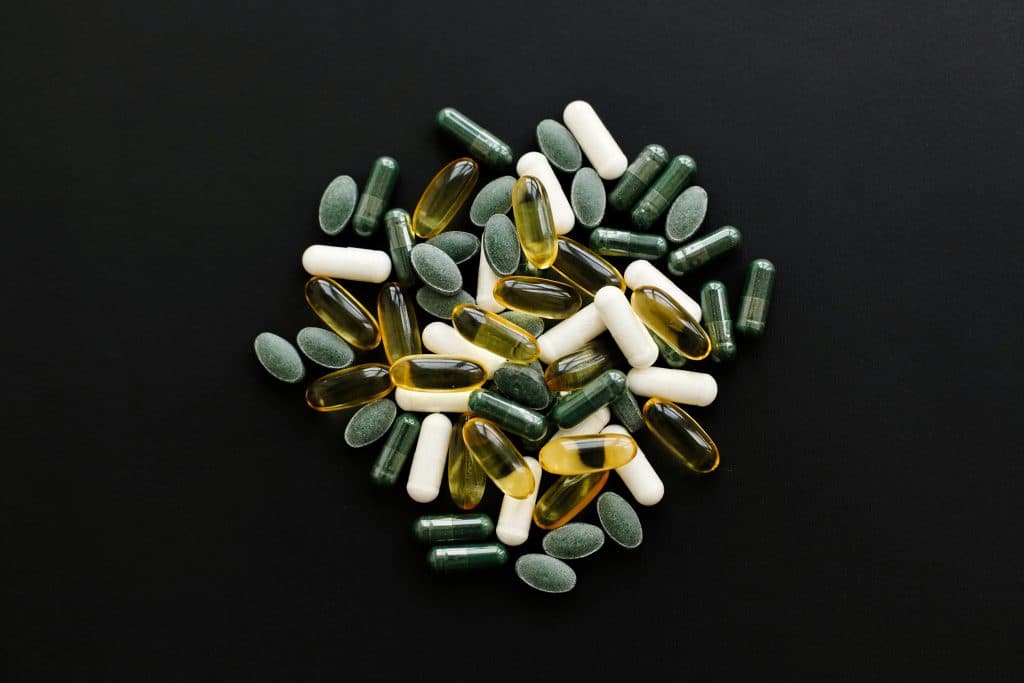Do you often feel tired and run down? Do you have trouble focusing or experience mood swings more often than you’d like? If so, your body might be lacking in certain essential nutrients. In this article, we will discuss the most common nutrients that are essential for optimal health. We will also provide tips on ensuring you get enough of these nutrients in your diet. So read on to learn more!
Contents
What Are Nutrients?

Nutrients are necessary for the proper function of cells, tissues, and organs. They include proteins, carbohydrates, fats, vitamins, minerals, and water. These substances are essential for cellular processes such as energy production, cell growth and repair, and synthesizing enzymes and hormones. You can obtain nutrients from food or supplements, and each type of nutrient has a specific role in the body.
For example, proteins build and repair tissues, while carbohydrates are broken down into glucose to provide energy for cells. You need vitamins and minerals for a variety of biochemical reactions, and water is essential for all cellular processes. Without adequate amounts of these nutrients, the body would be unable to function correctly.
Nutrients Your Body Might Be Lacking
It’s no secret that a well-balanced diet is crucial for good health. However, there are certain nutrients that many people need help getting enough of in their diets. Here are some essential nutrients to pay attention to:
Iron

Most people are familiar with the role of iron in the blood, but few realize that this essential nutrient has many other vital functions in the body. For example, iron is necessary for producing energy, the proper function of the immune system, and maintaining healthy skin, hair, and nails. As a result, iron deficiency is one of the most common nutritional deficiencies in the world, and it can lead to various health problems. The symptoms of iron deficiency can be subtle at first, but they can worsen over time if the deficiency is not corrected.
Fatigue, weak immunity, and brittle nails are just a few of the potential consequences of not getting enough iron. To ensure that your body has adequate iron levels, eat plenty of iron-rich foods such as liver, dark leafy greens, and legumes. You can also talk to your doctor about taking an iron supplement.
Calcium

Most people know that calcium is important for strong bones and teeth, but did you know it also plays a vital role in other bodily functions? Calcium helps to regulate muscle contraction, helps with blood clotting, and is necessary for proper nerve function. Unfortunately, many people need more calcium in their diet.
A lack of calcium can lead to health problems such as osteoporosis, muscle cramps, and irregular heartbeat. The good news is that plenty of calcium-rich foods are available, including dairy products, leafy green vegetables, nuts, and seeds. So if you are lacking in this important nutrient, make sure to stock up on these foods. Your body will thank you for it!
Fiber

Most people think of fiber as something that helps keep them regular, and while that’s true, fiber is so much more than that. Fiber is essential for a healthy digestive system, but it also helps to balance blood sugar levels, lower cholesterol, and reduce the risk of heart disease. Fiber is in a variety of foods, including whole grains, fruits, vegetables, and beans. But unfortunately, the average American diet is woefully lacking in fiber.
The good news is that there are many easy ways to increase your fiber intake. For example, adding a handful of berries or a slice of whole grain bread to your breakfast, enjoying a salad for lunch, and snacking on carrots or celery with peanut butter are all simple ways to ensure you’re getting enough fiber. So next time you’re looking for a way to improve your health, don’t forget about fiber!
Vitamin A

Vitamin A is an essential nutrient that helps to keep your body functioning properly. Unfortunately, it’s also one of the nutrients in which your body is most likely deficient. The best way to get enough vitamin A is through your diet, but many people need to eat more foods rich in this nutrient. Vitamin A is in dark leafy green vegetables, orange, and yellow fruits and vegetables, eggs, and dairy products.
It’s also available in supplement form. If you think you might be deficient in vitamin A, talk to your doctor about getting a blood test to check your levels. Deficiency can lead to many health problems, including dry skin, night blindness, and a weakened immune system. Therefore, it’s crucial to ensure you get enough of this nutrient.
Vitamin C

Vitamin C is one of the essential nutrients for our bodies. It helps protect cells and keep them healthy, and it also plays a role in wound healing and collagen production. Unfortunately, vitamin C is also one of the nutrients that our bodies are most likely to be lacking. The best way to get enough vitamin C is to eat a diet that includes plenty of fruits and vegetables. Citrus fruits like oranges and grapefruits are excellent sources of this nutrient. However, taking supplements or getting vitamin C injections is possible if necessary.
Potassium

Most people are familiar with the basic nutrients that the body needs to function correctly, such as vitamins, minerals, and protein. However, some lesser-known nutrients can also have a significant impact on health. Potassium is one of these nutrients. It is in many foods, including fruits, vegetables, meat, and dairy products.
Potassium is vital for several reasons. It helps to regulate blood pressure, protect against heart disease, and prevent bone loss. A diet lacking in potassium can lead to fatigue, muscle cramps, and irregular heartbeat. Therefore, eating a variety of potassium-rich foods every day is essential to ensure that the body gets enough potassium.
These Are The Nutrients Your Body Might Be Lacking
In conclusion, there are many essential nutrients that our bodies might be lacking. The best way to ensure we get enough of these nutrients is to eat a balanced diet that includes fruits, vegetables, whole grains, dairy products, and protein sources. However, if necessary, supplements or injections can also be used to boost nutrient levels. It’s important to pay attention to these nutrients and ensure we get enough of them for optimal health.


